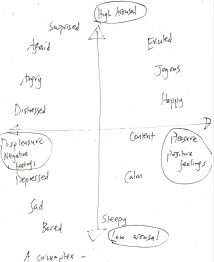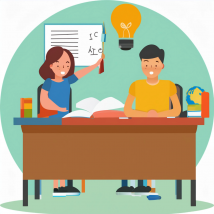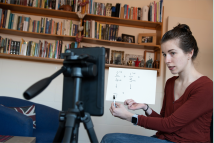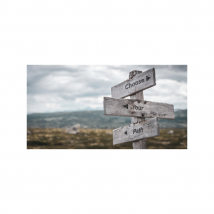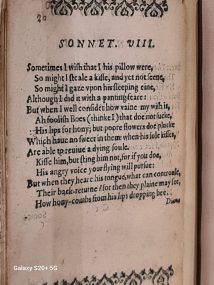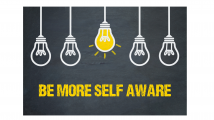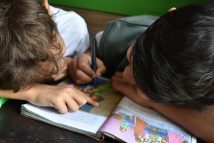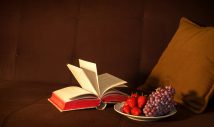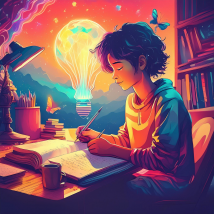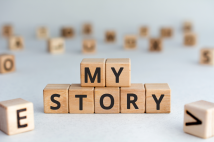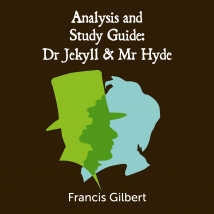for teachers
Here I post a variety of material for teachers. You can reorder the table to aid your search by clicking any of the headings.
-
What’s Next? Ecoliteracies and creative writing
Creative writing can be used to nurture ecoliteracie, helping people developing an organic, ecological view of language.
-
Teaching Creative Writing Online: Research-Informed Strategies
A summary of a presentation at NAWE Conference 2021, suggesting some ways of teaching creative writing online, using puppets, stories, drawings and metacognition.
-
Different ways of descending into the crypt: methodologies and methods for researching creative writing
For all creative writers who wish to explore writing processes further, using established research.
-
Why teach creative writing? Examining the challenges of its pedagogies
One of the purposes of teaching creative writing is ‘to heal’, in other words, creative writing is taught as a form of therapy, maybe more than is openly stated. Many teachers set therapeutic tasks so the author can learn and grow from the experience of writing about it.
-
Lockdown lessons: Teaching and working during the Covid-19 crisis
Some of the lessons I learnt during the Covid lockdown, about staying sane, being mindful and engaging with technology
-
Finding a new path: Building affective online learning spaces for creative writing and arts practice
On Covid-19 related research, for the British Educational Research Association.
-
8 Ways To Teach spelling, punctuation and grammar
For many, teaching Spelling, Punctuation and Grammar (SPaG) is daunting. The stakes are high, and the weighting on SPaG in exams has raised anxieties. Here are some tried and tested approaches.
-
Mindfulness and Creative Writing
How mindfulness can be used by creative writers to develop their practice and pedagogy
-
The Teachers’ Standards and English Teaching
Some interesting ideas about educating English teachers in relation to Teaching Standards set in 2012… However, these standards are less emphasized now than when I wrote this article.
-
Riding the Reciprocal Teaching Bus. A teacher’s reflections on nurturing collaborative learning in a school culture obsessed by results
My interactions with the teaching strategy known as Reciprocal Teaching (or Reciprocal Reading), which involves students learning to read collaboratively in small groups.
-
Aesthetic literacy and autobiography
How I became ‘aesthetically literate’, and used other artistic work to educate and heal myself. ‘Aesthetic literacy’ may even be more important than other forms of literacy because of its therapeutic dimensions.
-
Dreaming of a Better World
A creative writing and reading project, carried out at Deptford Green school, which put the principles of Reciprocal Teaching into practice.
-
The Creative Writing Teacher’s Toolkit
There are certain pedagogical strategies, such as encouraging freewriting, using prompts and fostering flow which can significantly help learners to write creatively.
-
But sir, I lied – The value of autobiographical discourse in the classroom
The benefits of teachers using their own autobiographical writing in the classroom. The blurring of truth and fiction in autobiographical writing can provide students with the cloak of fiction when writing about their own lives
-
Aesthetic Learning, Creative Writing and English Teaching
‘Aesthetic learning’ can be helpful for English teachers, because we are all ‘aesthetic learners’: we learn to appreciate the qualities of the worlds we inhabit, whether actual or virtual.
-
My Dr Jekyll and Mr Hyde Audio Book is now published: free copies available, read more here!
A discussion about the creation of my audio book for my best selling study guide on the novel ‘The Strange Case of Dr Jekyll and Mr Hyde’.
-
Making an audio book of my Dr Jekyll and Mr Hyde study guide
I’m very excited to announce that the marvellous actor and audiobook reader Richard Bunn will be reading my bestselling study guide ‘Analysis and Study Guide: Dr Jekyll and Mr Hyde’. The book has proved to be one of my popular books over the years and has continued to sell well. I was impressed by all […]
-
Five Ways to Revolutionise Reading in Your School
These suggestions are based on the points raised at the Reading Revolution Conference held at Goldsmiths, University of London on Saturday 23rd September 2017. ONE: Encourage Reading for Pleasure Read for the sake of reading. Read aloud, read in groups, read in pairs, read silently. Read poems, stories, articles, blogs, relevant social media and so […]
-
Shakespeare as cultural capital
This article, in a slightly different form was initially published on the Teachit website. Shakespeare as Cultural Capital by Francis Gilbert on Scribd
-
How can we help secondary school students read for pleasure and improve their reading skills? #GdnBLReading
Yesterday I spoke at the Guardian Education Centre for a conference on Reading for Pleasure in the secondary classroom. The Guardian’s literary editor, Claire Armistead, kicked off the day by explaining that we need our young people to enjoy reading and to read whole texts which are not part of the curriculum; she pointed out […]


